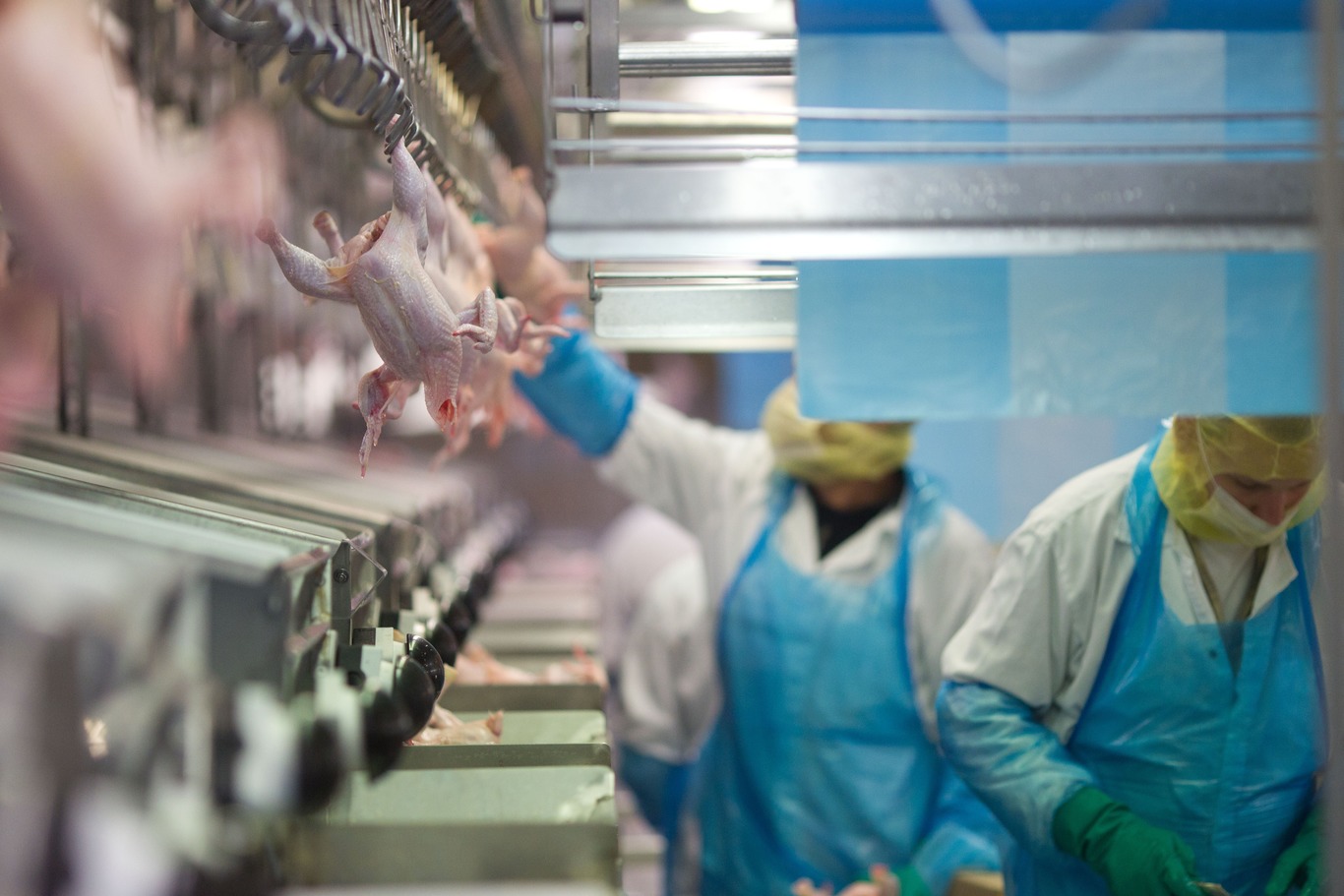Ireland's biggest chicken producer has been sold for more than €1 billion
US company Pilgrim’s Pride will become Moy Park’s third owner in less than a decade.
MOY PARK, THE largest chicken producer on the island of Ireland, has been sold to US firm Pilgrim’s Pride for more than €1 billion.
The deal follows the Northern Irish food company being put on the market by its former owner, the scandal-plagued Brazilian meat giant JBS – which is also the largest shareholder in Pilgrim’s Pride.
The 75-year-old Moy Park, the largest private-sector employer in the North, was valued at $1.3 billion (€1.1 billion) in the transaction.
Pilgrim’s Pride said the deal would position it to “become a global player” with access to the UK and European markets. Moy Park has 13 factories across Ireland and Europe processing 5.7 million bird per week from 800 farmers.
Moy Park’s chief executive, Janet McCollum, said the sale was “a positive development” for the company and all its workers.
“Joining Pilgrim’s gives us the opportunity to accelerate our growth plans, share best practices and leverage Pilgrim’s expertise and operational excellence,” she said.
“Moy Park will provide Pilgrim’s with a platform for growth in Europe as well as access to innovation and increased exposure to prepared foods.”
Third time lucky
The deal represents the third time Moy Park has changed hands in three years after its 2008 sale to Brazilian firm Marfrig and later transfer to JBS, which has been offloading assets since becoming embroiled in a major corruption scandal in its home country.
JBS paid about $1.5 billion when it bought the Armagh-based chicken processor in 2015, however its parent company was recently slapped with a $3.2 billion fine over the corruption case, in which its owners admitted bribing nearly 2,000 politicians.
Moy Park has more than 9,000 staff on its books, including an estimated 6,300 workers in Northern Ireland.
Pilgrim’s said it expected extra annual revenue of about $2 billion following the deal, while it expected to save $50 million over the next two years by streamlining production and stripping other costs.






